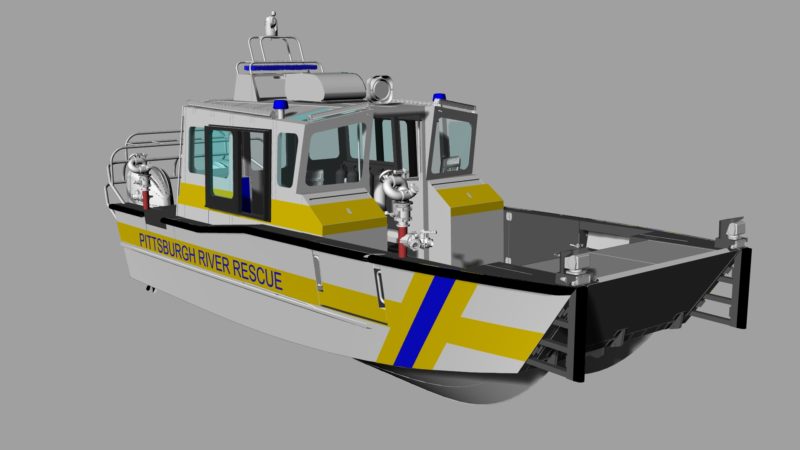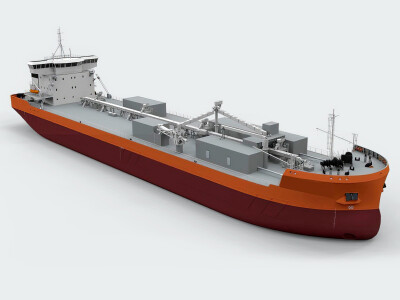The city of Pittsburgh River Rescue Unit has selected Lake Assault Boats, Superior, Wis., to construct a 30' EMS river rescue vessel. The craft’s primary mission is to perform rescues in response to water emergencies, administer advanced life support (ALS) services, assist firefighting operations, and provide security for the U.S.’s second largest inland port. The new boat will be delivered in fall 2019.
“This is our second craft for the city of Pittsburgh in the past three years, and we’re thrilled to receive this vote of confidence from a city known for its vital waterways and iconic riverfront,” Chad DuMars, Lake Assault Boats vice president of operations, said in a statement announcing the contract. “This custom craft features fast response combined with a full toolbox of capabilities to address a wide range of emergency scenarios.”
The boat’s catamaran style hull is engineered for enhanced stability and maneuverability, and it will be powered by two state-of-the-art Yamaha 425 hp outboard engines for maximum response time. Slow speed maneuvering is controlled by Yamaha’s Helm Master joystick steering and digital anchoring system. The vessel features a 74" hydraulically operated bow door, a heated front deck, and dive step cutouts. The vessel will also be able to deploy a SWAT team and its equipment, including an ATV vehicle.
“This new rescue vessel will respond to just about any emergency — from a medical situation on a river cruise ship, to a SWAT team’s mission or a fire on a fishing boat,” said division chief Raymond S. Everitt, a 35-year veteran of the Pittsburgh Bureau of Fire. “In addition, our unit participates in several mutual aid agreements, and there are times we’ll need to travel long distances. The craft’s 45 mph estimated top speed will greatly improve our response time.”
The boat will carry an ALS squad on board and is equipped with the same medical gear found on a traditional ambulance. Its 10' long, fully enclosed pilothouse has an 80" interior clearance height, with ample room to treat patients in space protected from the elements. There is an operator’s captain seat with storage below, additional bench seating, and numerous storage compartments. The helm station features integrated fire pump controls and an overhead radio rack. The craft will carry a full spectrum of electronics, including chart plotter, HD radar, sonar, and a forward looking infrared (FLIR) system, all controlled through two Garmin touchscreens.
For firefighting operations, the boat will be outfitted with a Darley 750 gpm fire pump (stored in a recessed deck compartment) with through-hull suction into a sea chest, and an Elkhart deck monitor and nozzle. Other notable features will include a full complement of LED floodlights, warning lights, and spotlights; a hinged radar arch; and an SCBA dive bottle rack.





